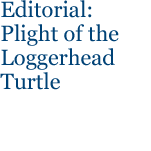A few months ago, the evolutionary biologist Richard Dawkins received an e-mail message from a producer at Rampant Films inviting him to be interviewed for a documentary called “Crossroads.”
The film, with Ben Stein, the actor, economist and freelance columnist, as its host, is described on Rampant’s Web site as an examination of the intersection of science and religion. Dr. Dawkins was an obvious choice. An eminent scientist who teaches at Oxford University in England, he is also an outspoken atheist who has repeatedly likened religious faith to a mental defect.
But now, Dr. Dawkins and other scientists who agreed to be interviewed say they are surprised — and in some cases, angered — to find themselves not in “Crossroads” but in a film with a new name and one that makes the case for intelligent design, an ideological cousin of creationism. The film, “Expelled: No Intelligence Allowed,” also has a different producer, Premise Media.
The film is described in its online trailer as “a startling revelation that freedom of thought and freedom of inquiry have been expelled from publicly-funded high schools, universities and research institutions.” According to its Web site, the film asserts that people in academia who see evidence of a supernatural intelligence in biological processes have unfairly lost their jobs, been denied tenure or suffered other penalties as part of a scientific conspiracy to keep God out of the nation’s laboratories and classrooms.
Mr. Stein appears in the film’s trailer, backed by the rock anthem “Bad to the Bone,” declaring that he wants to unmask “people out there who want to keep science in a little box where it can’t possibly touch God.”
If he had known the film’s premise, Dr. Dawkins said in an e-mail message, he would never have appeared in it. “At no time was I given the slightest clue that these people were a creationist front,” he said.
Eugenie C. Scott, a physical anthropologist who heads the National Center for Science Education, said she agreed to be filmed after receiving what she described as a deceptive invitation.
“I have certainly been taped by people and appeared in productions where people’s views are different than mine, and that’s fine,” Dr. Scott said, adding that she would have appeared in the film anyway. “I just expect people to be honest with me, and they weren’t.”
The growing furor over the movie, visible in blogs, on Web sites and in conversations among scientists, is the latest episode in the long-running conflict between science and advocates of intelligent design, who assert that the theory of evolution has obvious scientific flaws and that students should learn that intelligent design, a creationist idea, is an alternative approach.
There is no credible scientific challenge to the theory of evolution as an explanation for the complexity and diversity of life on earth. And while individual scientists may embrace religious faith, the scientific enterprise looks to nature to answer questions about nature. As scientists at Iowa State University put it last year, supernatural explanations are “not within the scope or abilities of science.”
Mr. Stein, a freelance columnist who writes Everybody’s Business for The New York Times, conducts the film’s on-camera interviews. The interviews were lined up for him by others, and he denied misleading anyone. “I don’t remember a single person asking me what the movie was about,” he said in a telephone interview.
Walt Ruloff, a producer and partner in Premise Media, also denied that there was any deception. Mr. Ruloff said in a telephone interview that Rampant Films was a Premise subsidiary, and that the movie’s title was changed on the advice of marketing experts, something he said was routine in filmmaking. He said the film would open in February and would not be available for previews until January.
Judging from material posted online and interviews with people who appear in the film, it cites several people as victims of persecution, including Richard Sternberg, a biologist and an unpaid research associate at the National Museum of Natural History, and Guillermo Gonzalez, an astrophysicist denied tenure at Iowa State University this year.
Dr. Sternberg was at the center of a controversy over a paper published in 2004 in Proceedings of the Biological Society of Washington, a peer-reviewed publication he edited at the time. The paper contended that an intelligent agent was a better explanation than evolution for the so-called Cambrian explosion, a great diversification of life forms that occurred hundreds of millions of years ago.
- 1
- 2











